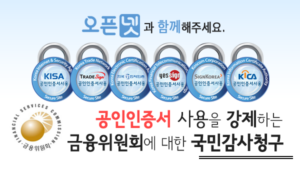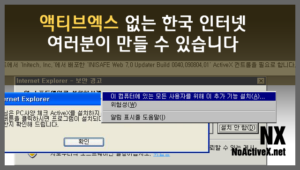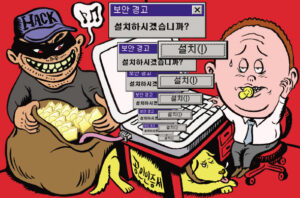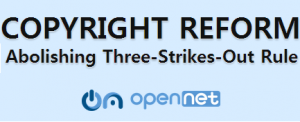Press Release
Expressing Regret over the Constitutional Court’s Decision to Remove the Right to Access Pseudonymous Information
Before we upload the English version text, please read the Korean version text with translation...
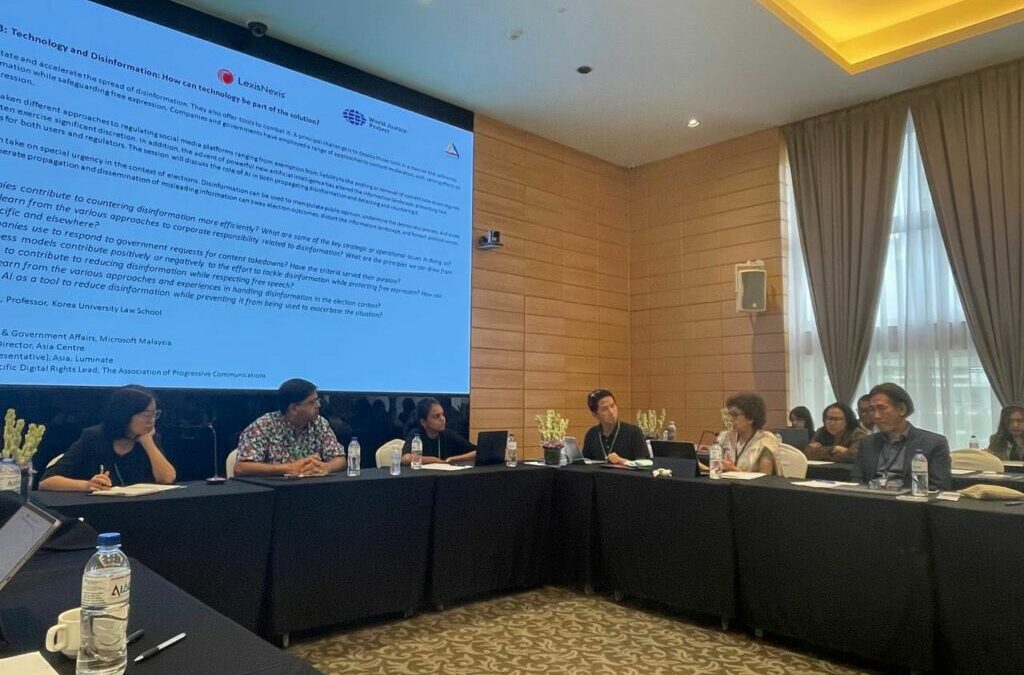
Open Net collaborates on consultation with ASEAN government stakeholders on disinformation responses
On September 30, 2023, in Kuala Lumpr, Open Net collaborated with World Justice Project to provide...
Loss in Administrative Lawsuit Regarding the Blocking of a Site Providing Abortion Information: Is Abortion Now Unrestricted Due to the Loss of Effectiveness of Abortion Criminalization?
Before uploading the English version, please read the Korean version with translation tools.
Open Net joins the GNI(Global Network Initiative)
Before uploading the English version, please read the Korean version with translation tools.
We condemn the unconstitutional control of the media and attempts to control the internet by KCC and KCSC
Before uploading the English version, please read the Korean version with translation tools.
LITIGATION
No Results Found
The page you requested could not be found. Try refining your search, or use the navigation above to locate the post.
OPEN SEMINAR

Open Net Hosts “Borderless Internet vs. Digital Sovereignty” Seminar
Open Net Hosts “Borderless Internet vs. Digital Sovereignty” Seminar Korean digital policy space...

Open Net Co-hosted “Fake News and False Information, Threats to the Freedom of Expression” at the National Assembly
Open Net co-hosted “Fake News and False Information, Threats to the Freedom of Expression" seminar...

Open Net Hosted “Where is Net Neutrality Going in the Age of 5G” Seminar at the National Assembly
pen Net co-hosted a seminar on net neutrality “Where is Net Neutrality Going in the 5G era” with...

Open Net co-hosted the Korea Internet Governance Forum (KrIGF) 2018
Open Net co-hosts and is on the Program Committee of the 'Korea Internet Governance Forum...

Open Net Hosted “The Future of the Internet Ecosystem” Conference to Celebrate 5th Anniversary
Open Net hosted “the Future of the Internet Ecosystem” conference to commemorate its 5th...
COURT ACTIONS
No Results Found
The page you requested could not be found. Try refining your search, or use the navigation above to locate the post.
education
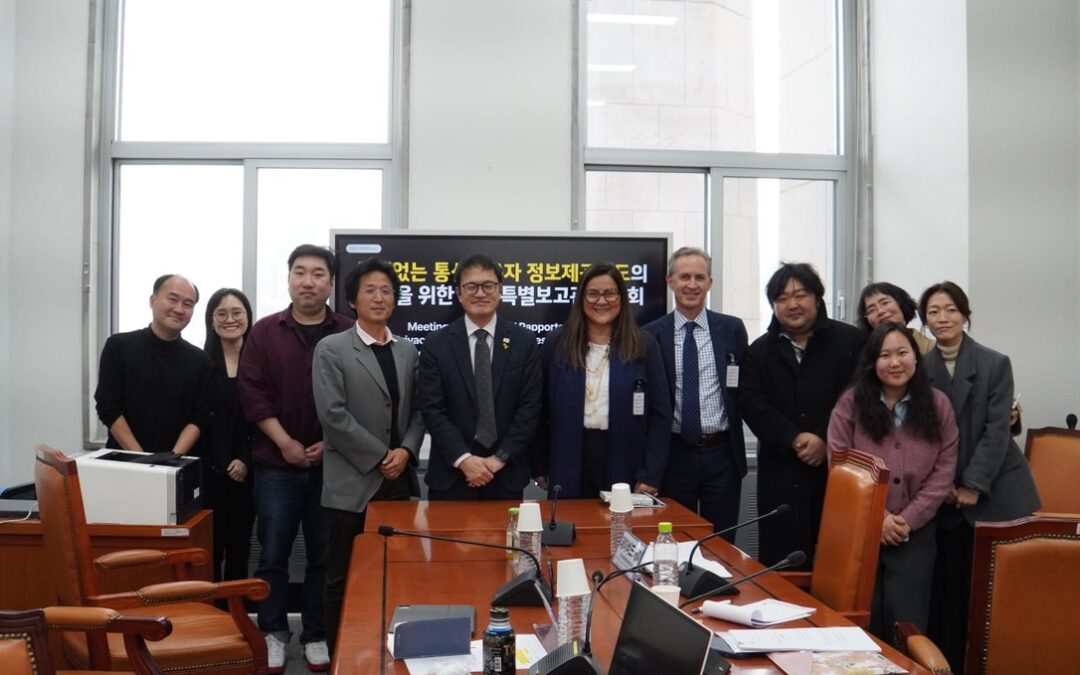
Hosting 3 UN Special Rapporteurs (Former and Current), Seminar and Roundtable Discussion with Lawmakers on State’s warrantless access to communication user data and with CSOs on privacy issues
OpenNet, Lawyers for a Democratic Society, Jinbonet, People’s Solidarity for Participative...
[Joint Statement] Condemns the KCSC for which censors satire contents that cause social disruption
On February 18, the KCSC held an emergency review and blocked two satirical videos mocking...
![[Rightscon 2025 Taipei] SEACPN public session on Content Moderation](https://www.opennetkorea.org/wp-content/uploads/et_temp/Screen-Shot-2025-03-16-at-1.09.36-AM-218207_1080x550.png)
[Rightscon 2025 Taipei] SEACPN public session on Content Moderation
This Rightscon session is continuation by Southeast Asian Collaborative Policy Network (SEACPN), a...
![[Rightscon 2025 Taipei] Age verification and human rights](https://www.opennetkorea.org/wp-content/uploads/et_temp/Screen-Shot-2025-03-16-at-12.43.43-AM-241577_1080x642.png)
[Rightscon 2025 Taipei] Age verification and human rights
The session will engage participants in considering the issues and seeding the drafting of a...
![[Rightscon 2025 Taipei] FOIA on Surveillance](https://www.opennetkorea.org/wp-content/uploads/2025/03/Screen-Shot-2025-03-16-at-12.15.57-AM-1024x369.png)
[Rightscon 2025 Taipei] FOIA on Surveillance
Documenting law enforcement agencies' use of advanced technologies through freedom of information...
POLICY RESEARCH
No Results Found
The page you requested could not be found. Try refining your search, or use the navigation above to locate the post.
CAMPAIGN
Stop Internet Censoring
We have seen many attempts to censor the Internet under the pretext of copyright protection. Notorious attempts are SOPA and PIPA of 2012, which triggered the largest online protest in history and was eventually withdrawn, and ACTA, a plurilateral trade deal killed by the European Parliament in 2012. Now, Korean government tries to enact a much stronger internet censoring rule. If it passes the legislative body, a copyright protection agency may cut off access to websites that the agency views as copyright infringing. The concerns over mass surveillance and privacy vulnerabilities by the proposed rule are widespread amid the government’s new drive to block “https” traffic by SNI eavesdropping (See, press release of Korea Communication Commission on February 12, 2019 and press release of MCST on May 2, 2018, both in Korean).
Intermediary Liability Campaign
Korean law (Copyright Act Article 103, Information Communication Network Act Article 44-2) requires intermediaries to take down all content for which anyone sends a takedown notice, regardless whether the content violates any right or law, not as a condition of qualifying for a safe harbor but as a positive obligation. As a result of this ‘mandatory’ notice-and-takedown system, the intermediaries are forced to take down thousands of contents daily which they believe to be perfectly lawful. Also, Korean laws require some intermediaries like P2P and cyberlockers to implement ‘technical measures’ to filter out copyright infringing material (Copyright Act, Article 104) and obscenity (Telecommunications Business Act Article 22-3 Paragraph 1), and requires all intermediaries to implement technical measures to filter out child pornography (Children and Juvenile Sex Protection Act Article 17). These ‘technical measures’ requirement ends up requiring the intermediaries to monitor each and every third party content posted on their services, turning the Internet into a space open to only those contents implicitly permitted by the intermediaries.
Open Net Korea has engaged in various efforts to bring the Korean law into compliance with the international norm, including but not limited to participating in the Steering Committee of the Manila Principles for Intermediary Liability, co-authoring a Good Practice Guideline for Intermediary Liability Regime published by the Network of Centers for Internet and Society, and calling the international community to write to the relevant officials.
Open Payment Campaign
Currently, the law requires all online payments above 300K Korean won (about US$300) to be signed by so-called “accredited certificates”, which are backed only by a Korean government agency operating as a root CA but none of the internationally recognized certificate accreditation agencies and therefore require various plugins to be downloaded from various vendors (most often through Active X technology due to the 90% plus dominance of Internet Explorer in the country) enabling and protecting the certificates. Such monolithic “closed” payment rule made the Korea-based e-commerce inaccessible for overseas customers and very inconvenient for domestic customers and indoctrinated Korean customers into a dangerous habit of accepting downloads of unknown origins, who therefore became easy targets for pfishing and other financial frauds. Open Net calls for the dismantling of the payment rule mandating use of the government-backed-certificates that are not really “accredited” in any global sense.
In 2013, Open Net ran a petition drive to file a Citizens’ Audit on the Korean Financial Services Commission responsible for implementing the closed payment rule, and obtained the sponsorship of more than 300 signatories who signed on-line at this site.
In 2013, Open Net ran a grassroots petition drive here to demand that the authorities overhaul the online payment rule so that the Korean net users can make payments without the nail-biting, computer-freezing, caution-numbing downloading of all the plugins. Several thousands have signed on putting pressure on the legislators and authorities.
In the latter half of 2013, Open Net lobbied for a Digital Signature Act amendment bill allowing digital signatures to be approved by internationally recognized root authorities and a Electronic Financial Transactions Act amendment bill requiring the Financial Services Commission rule-making to be technology-neutral in accordance with the Basel Principles. Here is the campaign headquarter page from which people will gather information and write mails, Twits, FB entries alerting the relevant lawmakers.
“Real” Child Abuse Prevention Campaign
The law punishes virtual images of imaginary children such as in animation and adult-actor films under the same legal scheme as child pornography made of video-recording or “morphing” of real children, which carry mandatory minimum sentence of 5 years for production and, among other things, 10 years of employment ban and 20 years of residential address tracking, not to mention the stigma of “child sex offenders”. Such law resulted in police actions focused on online uploading and downloading of files at the expense of depleted resources for pornography involving real children, which ironically ended up indictment of juvenile computer users as “child sex offenders”. Open Net calls for amendment of the Child and Juvenile Sexual Abuse Prevention Act to make the law serve its real purpose.
Campaign to Strike Out the Three Strikes Rule
In Korea, the copyright Three-Strikes-Out Rule came into effect on July 23, 2009 and gave the government a power to disconnect users from the Internet in the name of copyright protection. So far, although no one has been disconnected from the Internet, 408 website accounts have been shut down and 468,446 warnings or takedowns have been executed by the South Korean government (The Ministry of Culture and the Korean Copyright Commission, an entity empowered to do so without judicial scrutiny under the three-strikes rule). There is no prior judical scrutiny. The government has the full discretion in determining whether the postings or the user accounts are to be taken down or not. This is administrative censorship done fast and cheap for the rightholders, however, suppressing freedom of expression and communication and Internet users’ fundamental right to access, and endangering the future of the free and open Internet.

